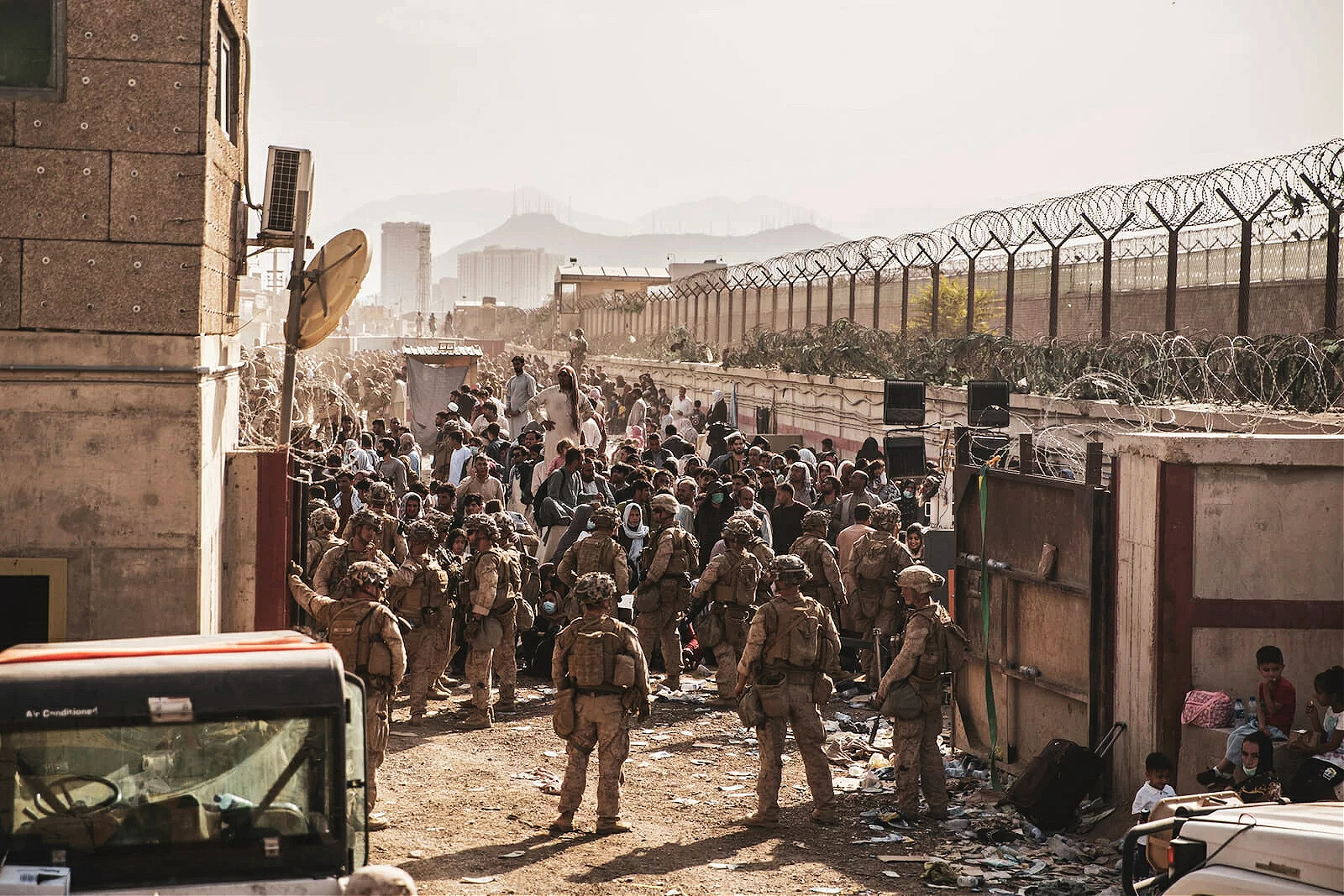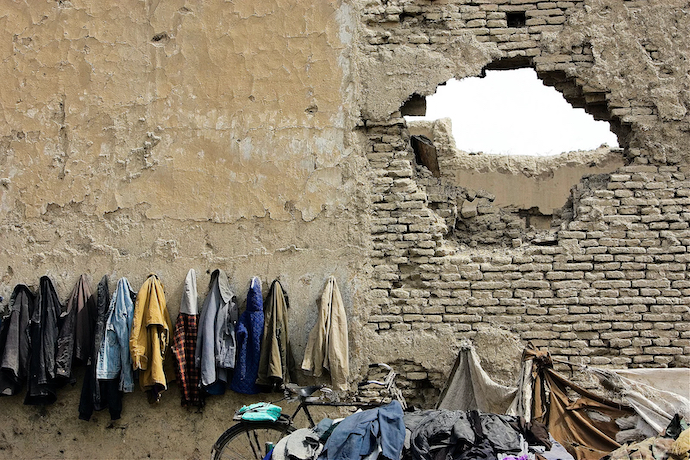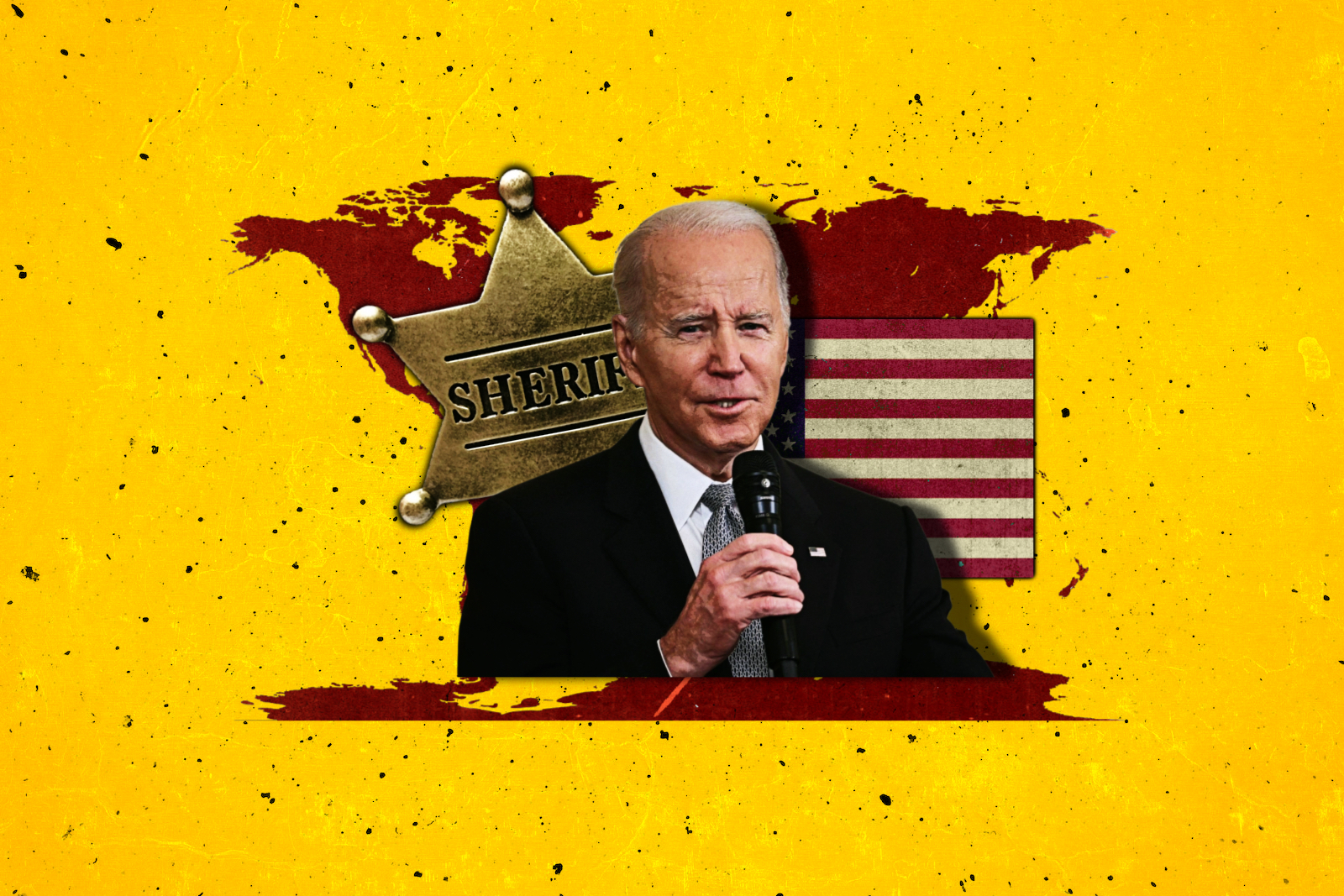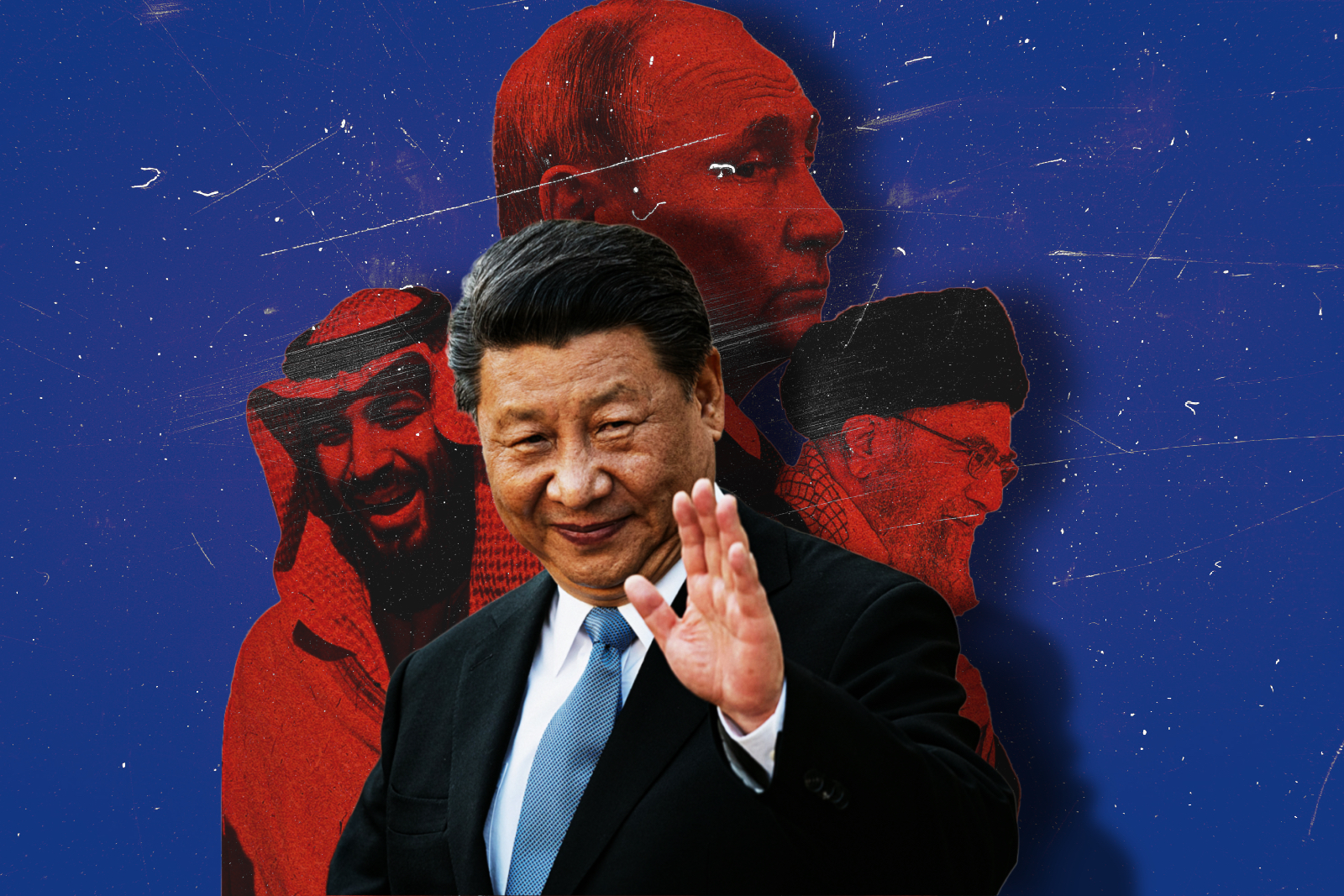
As the strategic significance of East Africa is once again growing with new players in the region due to its significant location at the entrance of the Indian Ocean and the Red Sea, France is also back.
On March 12, President Emmanuel Macron paid his first visit to the region, by visiting Djibouti, Ethiopia, and Kenya in an effort to catch up on the new developments in the region by nurturing new partnerships across the region and to break from its colonial past. In Djibouti, France’s former colony in the Horn of Africa and a country in which Thomas A. Marks has described as “France’s strategic toehold in Africa,” Macron’s visit was seen as an effort to “reassert French influence in the former colony, where China has a military base and has invested billions of dollars in infrastructure,” as Reuters reported. Djibouti, which hosted a French military base since 1932 and signed a mutual defense treaty with France in 1977, has become a military hub for other foreign powers – including the U.S., China, and Japan due to its strategic location as the southern entrance of the Red Sea – a significant waterway for global commerce and for naval powers to project influence across the Indian Ocean, as well as the Near East.
Countering China’s growing influence across the Horn of Africa was one of the most important objectives of Macron’s visit, as Beijing’s influence is growing in the Horn of Africa through massive investments in infrastructure projects including ports, railways, and roads across the continent. In Djibouti, Macron warned countries of the risk of their sovereignty being entrapped by ‘Chinese debts’ as the country is top on the list of eight countries that a study by the Center for Global Development concluded are at risk of China’s Belt and Road Initiative’s ‘debt distress’ if they fail to meet their debt payments.
“I would not want a new generation of international investments to encroach our historical partners’ sovereignty or weaken their economies,” Macron argued in front of Djibouti President Ismaïl Omar Guelleh. But, Macron was hosted in Djibouti’s Chinese-built presidential palace as a “reminder of China’s growing presence” in Djibouti. Beijing has also updated the 1917 French-built railway that connects Djibouti to Ethiopia, a railway that is significant for Ethiopia’s trade with the outside world. Paris’ new strategy in the region could be interpreted as an effort to connect its strategy towards the Indo-Pacific region, by increasing its presence in the Oceans, improve bilateral ties with the U.S. and counter China’s power projection in Asia and Africa.
Relations between Djibouti and France are seen as ‘drifting apart’ from their historical precedence as critics argue that France’s presence, in not only Djibouti but across the continent, is seen more through the security-lens, rather than as development or economic relations. As this argument goes, countries in the region are looking for infrastructure development and China is rising to become their ‘partner of choice,’ investing in mega-projects with fewer strings attached. Recently, an official from the government of Djibouti argued that while China is willing to invest billions, “the French are late and have no money” to compete with Chinese state-owned firms as Djibouti presents itself as a future global trading hub.
In Kenya, climate change and deepening trade relations with France was the driving force of Macron’s visit. By visiting Nairobi, Macron was the first French head of state to visit the country since its independence in 1963 and his main agenda was to attend the One Planet Summit, hosted by Kenya. As the U.S. decided to leave the Paris Climate Accord in 2017, France under Macron, is leading a global effort to achieve the accord’s goals by launching new initiatives including the One Planet Summit. In his speech to the delegates of the summit, Macron called for global cooperation to address the challenges posed by the changing climate. However, signing new lucrative deals on infrastructure investments and renewable energy also took place as Nairobi is seeking to boost its trading partnership with France in an attempt to diversify its foreign investments. Kenya is also another country heavily indebted to China’s infrastructure projects under its Belt and Road Initiative and traditionally France has had little influence in the country.
But in Ethiopia, the news was different, and here is where a new and significant strategic partnership is developing between the Horn of Africa’s most-populated country and France. Under the new leadership of Prime Minister Abiy Ahmed, Ethiopia is seen as open for business and is asserting itself as a ‘regional hegemon.’ As a new round of privatization seems inevitable under Ahmed’s government, Ethiopia’s key sectors like telecommunication, shipping, and energy industries are looking for new investments, and French companies including Orange SA and Total SA are eyeing new opportunities in the privatization of Ethiopia’s energy and telecommunication sectors. Aside from the economic discussions, new agreements were signed by the two countries to develop Ethiopia’s cultural heritage, including preserving churches and opening an archaeological dig at a 12th-century village, as Reuters reported.
In the military domain, Ethiopia and France reached a major breakthrough by signing a new military cooperation agreement that includes France’s assistance on the landlocked country’s aspiration to build up a new naval force, which could deepen the relations between the two countries to a new level. Ethiopia disbanded its navy in 1991 as it lost its only coastline to the Red Sea to Eritrea’s secession. However, Addis Ababa seems determined to reconstitute its navy as the security and strategic environment of the region is evolving. Ethiopia, which is currently landlocked is seeking to “unite the Horn of Africa economically” by creating an economic bloc as a former Ethiopian diplomat, Birhanemeskel Abebe, told the BBC last June. So a new navy could play a central role in this economic integration. But as Addis Ababa expressed its willingness, it would take a long time for Ethiopia to have a fully integrated and well-equipped naval force, although it is not yet clear to the extent to which Ethiopia is prepared to become a naval power. French help on this front would be helpful. Even though the details have not been disclosed, this new agreement cover areas including training and assistance, capacity building, air cooperation, joint operations, new opportunities for defense purchases and strategic level exchanges.
France is the only European power that is currently in the game, and willing to play an active role in the security, economic, geostrategic realms in the Horn of Africa, but this could be played both as an opportunity, as well as a laggard. If the strategic goal of France is to counter China’s muscular posture in the region, then a broad coalition of European countries would be needed – not just France alone. Nevertheless, as U.S. policy towards the region seems unclear, aside from the counter-terrorism missions in Somalia, there is a lack of a common European strategy toward the region and France will be the only country that is ready to play its cards in the region, although it will struggle to compete with China’s economic influence.
ENTERTAINMENT
APRIL 23, 2023

‘Ghosted’ is Fun, Just Don’t Take it Seriously
I am often accused of taking movies too seriously, rather than just sitting back and enjoying their entertainment value. Well, this latest from director Dexter Fletcher (Rocketman, 2019) is textbook ‘popcorn entertainment’ made for those who prefer to sit back and enjoy.
There is plenty to like here and it did generate a few laughs, yet Ghosted is still a movie that doesn’t lend itself to much thought or post-viewing discussion. Spider-Man collaborators Chris McKenna and Erik Sommers, and Deadpool collaborators Rhett Reese and Paul Wernick have joined forces on a script that somehow doesn’t have the dialogue zings that can keep pace with the action sequences.
An early meet-cute occurs as organic family farmer Cole Turner (Chris Evans bucking his Captain America persona) unknowingly flirts with market shopper Sadie Rhodes (Ana de Armas, fresh off her Oscar nomination for Blonde, 2022), recommending she purchase a cactus rather than a Begonia once she discloses her work travel schedule. An all-day and all-night date ends with Cole telling his family that “she may be the one.” His caustic sister (Lizze Broadway) skewers him with the funniest one-liners in the film while informing him that his smothering texts and emojis have likely caused Sadie to ghost him.
It’s at this point that the clumsy organic farmer turns into an extreme stalker and heads to London. Don’t ask what trick allowed him to track her. A photo-op at Tower Bridge ends with Cole being abducted and presumed to be “The Taxman” (cue Beatles song), the only person with the code to unlock a chemical weapon in the possession of an arms dealer and dastardly bad buy Leveque (Oscar winner Adrien Brody). Of course, Sadie rescues Cole at the last minute, and her cover as an international art curator is blown. She’s actually a highly-skilled CIA spy.
Three major action sequences are featured: an exciting bus-in-reverse along a mountainside road in Pakistan, a fight scene aboard a private jet, and a guns-blazing shootout in a rotating high-rise restaurant. Ana de Armas is terrific in the action sequence and her rapport with Chris Evans (first noted in Knives Out, 2019) elevates the toothless banter between the two. It’s a bit shocking that this group of writers couldn’t land on wittier and sharper comments for these two characters as they bounce around the globe…even racing up The Exorcist’s stairway. At times it feels like an episode of Get Smart, although the action sequences are first-rate.
Supporting roles are held by Mike Moh, Amy Sedaris, Tate Donovan, and the always-fun Tim Blake Nelson. Many will enjoy the numerous cameos that pop up, at least one “Wilhelm scream,” and the sometimes obvious and/or cheesy song selection, a rare soundtrack to include both The Knack and Dua Lipa. The film leans more into cute than it probably should have, but with two of the most attractive stars working today, that’s forgivable. Just get your popcorn ready and sit back and enjoy this rom-com/action-thriller, and don’t think too much.

Victor Mancilla/USMC
WORLD NEWS
APRIL 23, 2023

America’s Afghan Withdrawal is Marked by Agony and Consequences
Decades of warfare, hardship, and displacement have shaped Afghanistan’s war-torn past. There have been substantial repercussions for those impacted by the aftermath of the U.S. withdrawal from the country in 2021. As someone who has a personal connection with a friend from Afghanistan, I have witnessed firsthand the devastating effects of the U.S. withdrawal on his life and the lives of many others.
In the 1980s, Taj Muhammad’s family, like many others, were refugees of the country’s civil war and sought refuge in Pakistan. They faced numerous challenges to settling in a foreign land, but despite the hardships, they were able to establish a new life there. However, after the U.S. invasion in 2001 to eliminate Osama bin Laden’s Al-Qaeda and the establishment of the American-backed Karzai government, Taj’s family decided to return to Afghanistan. Taj secured a job with an NGO in Kabul and was living a relatively comfortable life, despite the ongoing uncertainty and instability in the country.
However, Taj’s hopes were shattered when the United States withdrew from Afghanistan in 2021. The collapse of the Ashraf Ghani government plunged the country into chaos. Taj had to flee to Pakistan for a second time, leaving the life he had built behind. Taj, who is now in his late 40s, found himself living in extreme poverty in Pakistan, along with many other Afghan refugees whose lives were upended by the sudden turn of events.
For Taj, and many others like him, the U.S. withdrawal was a devastating blow. He holds the United States responsible for the agony and miseries that he and his fellow Afghans have faced. The American involvement in Afghanistan, which spanned over two decades, left a trail of destruction and suffering, pushing families into poverty and causing immense hardship for ordinary Afghans.

One of the glaring consequences of the U.S. withdrawal is the deteriorating situation for Afghan women and girls. Over the course of 20 years, progress was made in terms of gender equality and women’s rights, with increased access to education and opportunities for women. However, under the rule of the Taliban, there are growing concerns about the rollback of these hard-fought gains.
Another consequence of the U.S. withdrawal is the dire humanitarian situation. The country is facing a severe economic crisis, with widespread poverty, hunger, and displacement. The withdrawal has led to a breakdown of basic services; including healthcare, education, and infrastructure, further exacerbating the suffering of ordinary Afghans.
The U.S. withdrawal has also fueled political instability in the region. The swift collapse of the Ghani government and the rapid takeover by the Taliban has created a power vacuum and raised concerns about the potential for renewed civil war. The lack of a stable government has also hampered efforts to address the humanitarian crisis and provide assistance to those in need. Taj, who had hoped for a stable and peaceful future in Afghanistan, now sees his country embroiled in uncertainty and turmoil once again.
As Taj and his family struggle to survive in Pakistan, they are not alone in their plight. The aftermath of the U.S. withdrawal has had far-reaching consequences for the country and its people. The impact of the U.S. withdrawal goes beyond the immediate humanitarian crisis and instability. It has also raised questions about the credibility and reliability of the United States as an ally in the region. The abrupt nature of the withdrawal has left many Afghans feeling abandoned and disillusioned.
Moreover, the U.S. withdrawal has had regional and global implications. Neighboring countries, such as Pakistan, have had to bear the burden of hosting a large number of Afghan refugees, putting additional strain on their resources and infrastructure. The potential for increased regional instability, including the spread of extremism and terrorism, is a cause for concern for the international community. Taj is a living example of how the consequences of the U.S. withdrawal are not limited to Afghanistan but have far-reaching effects on the entire region.

The aftermath of the U.S. withdrawal has also raised questions about the long-term implications for U.S. foreign policy and credibility. The sudden collapse of the Afghan government, and the swift takeover by the Taliban, have led to criticism of the U.S. approach to nation-building and democracy-building efforts in Afghanistan. The billions of dollars spent and the sacrifices made by U.S. troops over the years are now being called into question, as the situation in Afghanistan has rapidly deteriorated.
However, there is another side to the story. Afghanistan’s indigenous culture, geography, and tribal values have always allowed the Taliban to conveniently intermingle in society and take refuge in rural hideouts. The amount of international aid funneled to the country since 2001 to reconstruct and rebuild an inclusive Afghan society was mismanaged and misused by corrupt Afghan officials, while the dynamics of rural Afghanistan did not allow these efforts to succeed. The resurgence of the Taliban after the U.S. withdrawal has again pushed Afghanistan back into the dark ages of religious extremism. The Taliban have quickly reversed the progress made over two decades with little resistance from Afghan society.
In light of the aftermath of the U.S. withdrawal, or retreat if you will, there are important lessons to be learned.
The need for a comprehensive and inclusive approach to nation-building in conflict-affected countries cannot be overstated. A sustainable and stable Afghanistan requires addressing underlying issues such as governance, corruption, security, development, and human rights in an integrated manner, with the meaningful participation of all stakeholders, including the Afghan people.
The importance of long-term commitments and responsible disengagement cannot be emphasized enough. Abrupt withdrawals without proper planning and coordination can have severe consequences, as witnessed in the case of Afghanistan. Any decision to withdraw from a conflict-affected country should be carefully considered, taking into account the potential impact on the country, its people, and the region as a whole.
The need for continued support for humanitarian assistance and the protection of vulnerable populations, including refugees, cannot be overstated. The humanitarian crisis in Afghanistan has worsened following the U.S. withdrawal, and efforts must be made to provide urgent assistance to those in need and ensure the protection of human rights, especially for women, children, and marginalized communities. The role of indigenous civil society is crucial here. Unless there emerges a powerful opposition to the brutal policies of the Taliban and until the local population breaks the barriers of their fear to confront religious extremism, outside assistance will be meaningless. Despite all the blame game, Afghans need a government that works for them and not against them.
The aftermath of the U.S. withdrawal has had significant consequences for the country and its people, as well as regional and global implications. Taj’s story is just one example of the many lives that have been upended by the sudden turn of events. The U.S. withdrawal has resulted in increased instability, humanitarian crises, political uncertainties, and questions about U.S. foreign policy and credibility.
It is crucial to learn from this experience and strive for comprehensive, inclusive, and responsible approaches to nation-building and conflict resolution in the future. Efforts must also be made to provide continued humanitarian assistance and protection to vulnerable populations, including refugees who are bearing the brunt of the aftermath of the U.S. withdrawal from Afghanistan.
If you’re interested in writing for International Policy Digest – please send us an email via [email protected]

Photo illustration by John Lyman
WORLD NEWS
/
APRIL 20, 2023

Can America Pull Back Without the World Burning Down?
For more than three decades, the world has enjoyed the most prosperous and peaceful time in its history. While conflicts would emerge, they would never rival the intensity of the Second World War. Under the global leadership of the United States, countries saw increased stability, innovation, and economic growth.
Yet, this era is quickly fading. Russia has set Ukraine on fire with its invasion in 2022, with no end in sight. The United States is losing its grip over the Middle East, marked by shifting regional alliances and an emboldened Iran. China is quickly displacing the international liberal world order with its soft and hard power, all while Taiwan remains under economic and military threat.
But while this is a period of uncertainty, it’s not as dire as we’re led to believe. Russia’s invasion has culminated in the failure to completely overwhelm Ukrainian forces, and China is more concerned with COVID, political unrest, and the economy than anything else. Iran is emboldened, but it is still more of a regional power than a global one, and other actors in West Asia are stepping up to curb growing escalation. Thus, America is at a crossroads between maintaining the international world order it has built up over the past three decades or, unfortunately, slowly diminishing its resolve to defend this system.
The past two American presidents recognized this problem. Barack Obama began a shift towards China early on with his “Pivot to Asia,” illustrating a concern for containing a rapidly growing China. His pullout from the Middle East signified a desire to undergo a strategic shift in American national priorities and a failure to fully disengage, as was proven with Libya and Afghanistan. And under Donald Trump, American foreign policy recognized the dual threat of an aggressive Russia and China but had no clear strategy to counter them.
Even more so, Trump set American credibility on fire. After the pullout of the Paris Accords and the condemnation of NATO, many European and international countries felt the heat of an isolationist United States. This issue sparked a new wave of isolationist tendencies and authoritarian pushback. Accordingly, Joe Biden’s era of American foreign policy is now delicately balancing the isolationism of America and the urgency to protect the liberal world order.
So, what should America do? There are two options for Biden and future presidents. First off, America cannot do everything at once. That much is clear. Policing the entire globe has cost Americans trillions of dollars, all while undermining U.S. credibility. Washington and Jefferson understood this, and so have the past three presidents. Second, the government must address America’s domestic troubles: inflation, a weak manufacturing sector, climate change, polarization, and populism are all issues Washington needs to face head-on to reassert itself within the globe. Empires before us have all experienced a relative decline, but time and time again, the ones that prevent terminal decline are the ones that address internal problems.
There are three key strategies against overstretch.
Retrenchment
This strategy is on the extreme end of the American foreign policy spectrum and calls for a significant reduction in international involvement. The U.S. would lower military spending, redraw troops from hotspots to prevent entanglement, commit less to international agreements, and begin to focus the majority of resources on the American public. The fight in Ukraine today would not be a key priority, nor would be defending Taiwan. This strategy is difficult to imagine given America’s long history of preserving its alliance system and upholding U.S. credibility.
Yet, a slight shift away from internationalism is possible. Afghanistan proves American people have the political will to redirect resources away from America’s periphery. This strategy does not have to be necessarily cataclysmic like it was in Afghanistan, either. The only test is if the United States can retrench without other allies and adversaries losing faith in the American-led order.
Offshore balancing
Offshoring recognizes the potential to leverage Washington’s international clout. Instead of detracting from the international world order, the U.S. would call on allies in a process called offshore balancing. South Korea and Japan would gradually acclimate themselves as regional hegemons to curb North Korean and Chinese escalation, Israel in West Asia to combat Iran, and regional actors in Eastern Europe to secure Ukraine. While this would preserve the liberal world order to a certain extent, it would require key sacrifices that Washington would be uncomfortable with, such as giving up the reins on allies and trusting them to stop adversarial escalation.
However, if executives sense that America’s days are numbered and it has entered a phase of terminal decline, choosing this option might be critical to preserving American strength in the long term. The question then would not be about protecting the international liberal world order in the short-term—such a downturn may be inevitable— but rather about giving the U.S. the best ability to reassert itself later in a more dystopian and authoritarian order.
Sequencing
A unique perspective among foreign policy experts on countering overstretch is acknowledging that incentives to preserve the international liberal world order and the capacity to do so are simply mismatched, understanding that the U.S. cannot catch up to each threat in every military and political theater. Instead, the U.S. would still need to invest more in its domestic capacities, such as the economy or military, but preserve its strength at the right place at the right time. Policymakers would recognize that the war in Europe is an immediate threat in one Western theater and that an eruption of tension in the Middle East may not happen until years later, especially with recent developments in regional diplomatic agreements and a new détente between Saudi Arabia and Iran.
An invasion of Taiwan may happen decades down the road and likely requires a much different economic and military response than Ukraine, allowing executives to leverage America’s diverse field of military technology and expertise for different situations. If the United States is wrong, though, it could mean Armageddon. Washington cannot handle the war in Ukraine with an emboldened Iran and an assertive North Korea, all while paired against a potential war in the South China Sea.
The United States may choose a strategy of all three: exploiting flexibilities in the international order, calling on allies, and reducing commitments. This approach would give America the maximum time and resource flexibility to stop calamity. However, one thing is clear: on the current track, the liberal world order will be set on fire. America must invest more in its nation domestically to address internal plights and plan strategically to mold the new world order
We are already witnessing the slightest pivot in the international world order. In a couple of decades, we will find out whether it has collapsed or become stronger than ever.

Photo illustration by John Lyman
WORLD NEWS
APRIL 20, 2023

China and Russia Want to be the New Hegemons
Chinese Defense Minister Li Shangfu’s visit to Moscow to meet with Russian President Vladimir Putin was not a casual visit, but rather a significant one intended to shore up ties between the two countries as they fight for world dominance.
As reported in the Financial Times, Putin said that Moscow and Beijing were “regularly exchanging useful information, partnering in the sphere of military-technical cooperation and holding joint exercises.” Putin also said Russia and China’s defence ministries were “working just as actively” in other areas, including on their economic relationship, where Beijing has thrown the Kremlin a lifeline as Western sanctions have cut Russia out of global markets and supply chains.
Li’s visit comes a month after Chinese President Xi Jinping’s state visit to Moscow. During his meeting with Putin, they announced a “new era.” Focusing on economic and military cooperation, the two leaders appear to be preparing for a future that sees their respective countries as leaders of their envisioned new global order.
Indeed, the recently leaked Pentagon papers indicated that China’s Central Military Commission had approved the provision of arms supplies to Moscow.
Additionally, according to the Australian Strategic Policy Institute (ASPI), “The strategic landscape of the Middle East is changing rapidly, but not in favour of the United States as the traditional powerful actor in the region. Continued adversarial U.S.-Iranian relations and regional Arab states’ growing concerns about Washington’s reliability as an ally have widened the arena for Russia and China to expand their strategic footprints in the region.”
More worryisome, both China and Russia are also working on cementing ties with Iran. According to the ASPI, there has been a “dramatic elevation in the Russo-Iranian and Sino-Iranian strategic partnerships. Bilateral trade and military cooperation between Iran and Russia has never been greater. The volume of their bilateral trade jumped from $4 billion in 2021 to $40 billion the following year. This comes on the back of a 20-year cooperation agreement that the two sides signed in March 2021.”
With Sino-Iranian trade and strategic relations having increased enormously, it is clear that China has ignored the U.S.-led sanctions on Iran. The ASPI notes that China “has continued to import Iranian oil and has leveraged its growing diplomatic influence by brokering the recent peace agreement between Iran and Saudi Arabia, restoring ties after a six-year split.”
Iran is soon set to join the China-Russia-led Shanghai Cooperation Organisation, and has also become a vital link in the westward expansion of China’s Belt and Road Initiative.
China is working vociferously to expand its influence and besides bringing together Iran and Saudi Arabia, it has now expressed its interest in mediating the Israeli-Palestinian conflict. Perhaps this interest is overly ambitious, as the U.S. has failed to do so for years, but the message is clear. China wants a leading role in all arenas: economic, trade, military, and diplomacy.
Aside from focusing on the Middle East, Russia, and China are also making an effort to gain influence in Africa and Latin America. Putin and Xi have been meeting with representatives from France, Brazil, and more than 40 African countries. Brazilian President Lula da Silva recently met with Xi Jinping and Russian Foreign Minister Sergei Lavrov has embarked on a trip to Brazil and other Latin American countries including Venezuela and Nicaragua to shore up support and influence.
And in another disturbing development, French President Emmanuel Macron traveled to Beijing for talks with Xi. After their meeting, Xi said that Europe is an “independent pole in a multipolar world.” As noted by Ted Snider at Responsible Statecraft. “That the Chinese leader should make such a statement is not surprising. That a major American European and NATO ally should sign on to it is.” Snider also noted that the joint declaration issued by Xi and Macron declares that they “seek to strengthen the multilateral international system under the aegis of the United Nations, in a multipolar world.”
This theme of multipolarity is thus not just a Sino-Russia one, but now includes Europe as well. As the U.S. focuses on the war in Ukraine and China’s hegemonic ambitions in the South China Sea, it has lost interest in the Middle East leaving a vacuum for other actors, such as Russia and China, to fill. But the U.S. is also showing signs of waning influence as it allows these other countries to so vocally and prominently announce their intention to change the world order.
As the leader of the free world, the United States has a responsibility to ensure global stability. Europe, more or less since WWII, has joined the U.S. in this mission. If Russia and China, both internationally recognized human-rights abusers, take the helm with Europe at their side, the global order will have changed for the worse.
© 2023 INT POLICY DIGEST LLC

